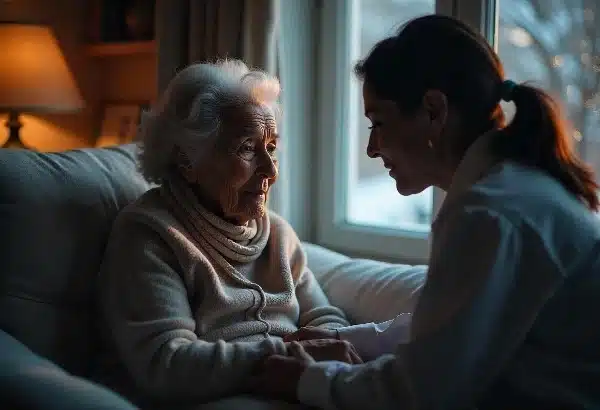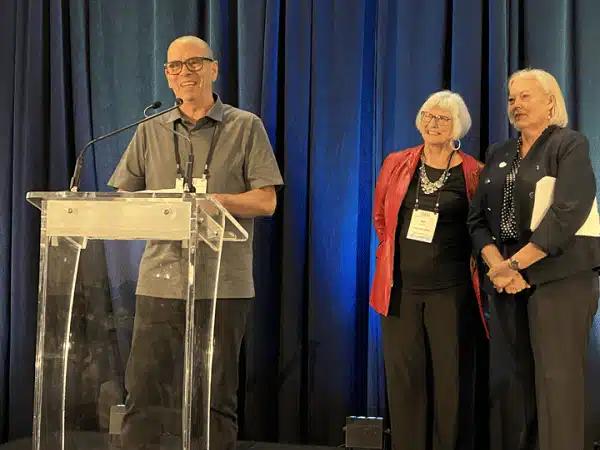Compiled by Misha Butot MSW, RCSW for
Life and Death Matters webinar April 23, 2024
Reflections from Misha Butot, in preparation for Webinar April 23 2024
Please download the PDF or enjoy in this format.
Palliative care specialists improve quality of life for the patients whose needs are most complex. Working in partnership with the primary physician, the palliative care interdisciplinary team provides:
- Time to devote to intensive family meetings and patient/family counselling
- Skilled communication about what to expect in the future in order to ensure that care is matched to the goals [values] and priorities of the patient and the family
- Expert management of complex physical and emotional symptoms, including complex pain, depression, anxiety, fatigue, shortness of breath, constipation, nausea, loss of appetite, and difficulty sleeping
- Coordination and communication of care plans among all providers and across all settings
Numerous studies show that palliative care significantly improves patient quality of life and lowers symptom burden. Apart from being the right thing to do for patients, this improved quality of life also means that an encounter with the health care system is less stressful and traumatic for families.
Center to Advance Palliative Care (CAPC) Downloaded April 13/24
Best practice palliative care is provided by interdisciplinary teams (physicians, nurses, social workers/counsellors, spiritual care staff, pharmacists, volunteers, etc.) who collaborate with primary care and acute care providers.
Some thoughts from a palliative care physician:
“I think there is a critical triad in palliative care of medical, nursing, and psychosocial support. It really is the wrap-around intervention from those 3 disciplines at a minimum that (in my opinion) should be a part of all palliative care interventions, not just the tertiary or most complex cases.”
- Dying is a human event, not just a medical event. Untethered psychic/existential suffering is untouchable by drugs/medicine – the best we can do is make patients less aware of their suffering by decreasing consciousness. The most human response is psychosocial intervention, and when losses, grief, uncertainty are witnessed and addressed, somatic symptom burden often improves.
- I can respond to a patient/family as a human and empathic physician, but I have not received formal training in counselling or psychosocial support, and patients deserve better, they deserve a trained counsellor (or spiritual care practitioner, or music therapist, etc.). I also go in with a medical lens, to ensure the physical symptoms and medical issues are addressed, so there is less time built into my assessment for comprehensive psychosocial intake. My medical mind can be “blind” to critical psychosocial issues: caregiver or patient overwhelm for example. Having psychosocial team members mean these things get addressed to allow proper palliation, and it raises my own personal awareness (because I’m often in homes alone, not with a team, so need that part of my vision to be at least present in a rudimentary fashion).
- The work can be hard, and I often need to debrief holding our patients’/families’ deep suffering and pain. The psychosocial team members know this, and provide formal and informal opportunities for the whole team to debrief, hold space for and process difficult emotions, etc. in a way that physicians or nurses are not trained to do. This is critical to maintaining our own health and sustainability in this work.
Reflections of a Palliative Care Physician
Value added role of psychosocial staff on palliative teams:
- Meet with patient/family before/during/after provider appointments to assist with referrals, mental health assessments, family counselling, crisis intervention and psychological first aid; this allows medical/nursing providers to focus on targeted medical priorities
- Strengthen existing connection with primary care provider
- Improve patient-health care provider communications (miscommunication/misunderstanding are primary drivers in readmissions)
- Assess goals of care, key values, priorities; explore information preferences; ask personal dignity question and what matters most
- Assess psychosocial coping including preparatory and anticipatory grief, anxiety and depression, losses, spiritual/existential care supports and needs
- Assist in system navigation, facilitate understanding, address bureaucratic distress and systemic barriers
- Assist persons with complex needs to access and participate in services
- Assist with advance care planning, time of death and funeral planning
- Provide information as requested on medically assisted death, liaise with MAiD team
- Provide person-in-environment, strength-based perspective to interdisciplinary team
- Consultation with interdisciplinary team re: cultural safety, trauma-informed practice, psychological/contextual factors impacting medical/nursing care
- Facilitate family meetings and mediation/de-escalation
- Provide psychoeducation on self-regulation/self-soothing techniques (eg breathing)
- Address and relieve existential suffering, provide psychoeducation on nonpharmacologic relief for pain, nausea, dyspnea, delirium, anxiety, insomnia
- Develop/follow up on comprehensive, holistic and person-centered care plans with rest of interdisciplinary care team – assess and remediate nuanced vulnerabilities and needs
- Assist in system coordination for consistency of care, skillful care transitions, advocate for improved patient/family care concordant with patient/family values
- Provide support to staff re: emotional aspects of care (support team debriefs/care reviews, support team member and whole team resilience
- Advocate for organizational wellness, culture of psychological safety and clear team communications to ensure patient safety
- Assess complicated bereavement risk and provide bereavement follow up and resources
Reflections gathered and compiled by Misha Butot April 2024








